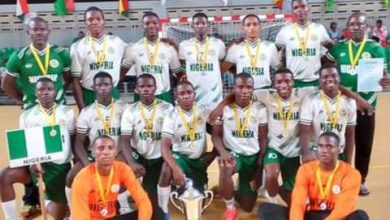
The Economic Community of West African States (ECOWAS) Court has dismissed a lawsuit filed against Nigeria by two Non-Governmental Organizations (NGOs) over the destructive impact of the 2012 and 2022 Lagdo Dam floodings.
The NGOs, Incorporated Trustees of Prince and Princess Charles Offokaja Foundation, Nigeria, and the Prince and Princess Charles Offokaja Foundation, Switzerland, had alleged that Nigeria’s failure to build a dam in Adamawa to mitigate the effects of the Lagdo Dam overflow from Cameroon violated the fundamental rights of Nigerian citizens.
The NGOs had argued that the delayed construction of the dam led to widespread flooding, destruction of property, loss of lives, displacement, and disruption of economic and educational activities across 14 Nigerian states. They also contended that the dam project could have prevented the flooding and enabled the management of water for purposes such as irrigation and electricity generation.
However, delivering the judgment on Friday, Justice Sengu Koroma, presiding judge and rapporteur, ruled that the court could not proceed with the lawsuit. The court dismissed the claims in their entirety, noting that the second applicant, the Swiss-registered NGO, did not have the legal standing to bring the case before the ECOWAS Court.
The court also stated that while the first applicant, the Nigerian-registered NGO, claimed to represent the public interest, it failed to meet the necessary criteria for public interest litigation. Specifically, the court highlighted the requirement that in such cases, even when the victims are indeterminable, the class of victims should be identifiable and capable of being envisaged by the court. Since the applicants failed to provide specific details about the victims whose rights were allegedly violated, the court ruled that the suit lacked the required legal standing.
“The court recalls that the requirement is that the class of victims in a public interest litigation, even when indeterminable, should be capable of being envisaged by the court,” Justice Koroma stated. “While the applicants referenced a broad class of victims (the Nigerian people), the court is unable to identify or envision the specific victims whose rights were allegedly violated.”
The court further noted that while it has the jurisdiction to hear human rights violations cases, the applicants’ inability to establish their capacity to bring a case in the public interest rendered the lawsuit untenable.
Nigeria, which had denied the claims made by the NGOs, asserted that it had conducted a feasibility study of the dam project in 1982 as part of a broader initiative to develop the Benue Basin’s water resources. The government also emphasized the Memorandum of Understanding (MoU) between Nigeria and Cameroon to enhance cooperation in managing shared water resources. Additionally, the federal government argued that it had taken various measures to address flooding, including constructing more dams and securing a 2024 Senate resolution for the dredging of Rivers Benue and Niger.
The Nigerian government contended that the applicants had failed to demonstrate the specific victims affected by the flooding or show any direct violation of rights. The case was dismissed by the three-member panel, which included Justice Dupe Atoki and Justice Edward Asante.





